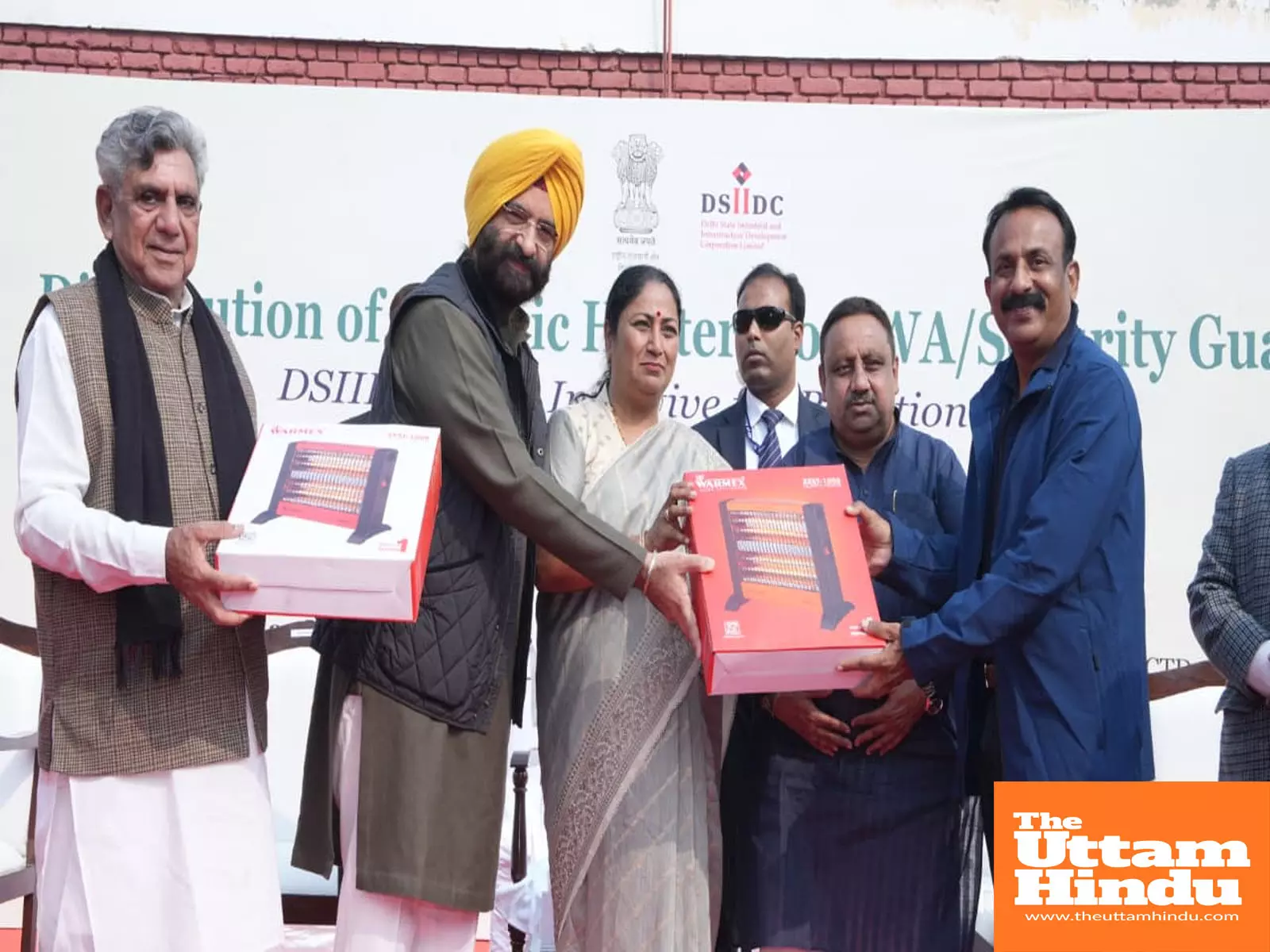Rekha government’s unique initiative: Heaters distributed to night guards to provide relief from cold and curb pollution

New Delhi(The Uttam Hindu): The Rekha Government in Delhi has launched a unique and heartfelt initiative. The government has begun distributing heaters to security guards so that the guards patrolling residential colonies during winter can protect themselves from the cold using these heaters. Chief Minister Smt. Rekha Gupta today distributed electric heaters to RWAs at Dilli Haat, Pitampura.
She stated that this initiative will not only provide relief to night guards during the cold, but will also help reduce air pollution by curbing the open burning of traditional fuels such as wood and coal. The Chief Minister further noted that the Delhi Government is working on a multi-dimensional strategy to control pollution in the capital. The entire government and administrative machinery are taking strong and effective measures to bring pollution under control.
The programme was attended by MP Praveen Khandelwal, Cabinet Minister Manjinder Singh Sirsa, MLA Tilak Ram Gupta, Rajkumar Bhatia, and representatives of various RWAs. On this occasion, the Chief Minister said that open burning of wood, waste, and coal is a major cause of pollution in the capital. To address this issue, the Delhi Government has launched this scheme from today, under which more than 10,000 electric heaters will be provided to various RWAs through CSR funding.
She added that this humane measure represents a new model of public participation. The government will now encourage ironing workers to shift from coal-based irons to gas or electric irons, and families in slum clusters will be provided LPG connections through the Ujjwala Scheme. She emphasised that the fight against pollution can only be won when citizens, institutions, and RWAs contribute equally. She said that this step strengthens the collective resolve to make Delhi cleaner and healthier.
The Chief Minister informed that her government is consistently taking strong and effective measures to improve air quality. All ministers, public representatives, and government officials are continuously monitoring cleaning and sanitation drives. Modern machinery and equipment are being deployed to improve cleanliness. Rapid progress is being made towards electrifying Delhi’s public transport system, and by the end of 2026, 100 percent of Delhi Government’s buses will be electric.
Commenting on the policies of previous governments, she said that despite being in power for over 11 years, the former government failed to deliver on fundamental issues such as pollution control, cleaning the Yamuna, eliminating landfill mountains, improving roads, and constructing schools and hospitals. She said the previous administrations became known only for inconvenient experiments like odd–even, which caused difficulties for the public.
In contrast, the present government is preparing long-term solutions with honesty and a scientific approach. She added that the government is also working on advanced scientific technologies such as cloud seeding. While the Delhi Government remains committed to finding solutions, the opposition remains confined to mere criticism. The Chief Minister said that public cooperation, technology, and responsible governance are the three pillars on which the government’s strategy rests to make Delhi a pollution-free and sustainable model city.
On this occasion, Environment Minister Manjinder Singh Sirsa said that under the leadership of Chief Minister Smt. Rekha Gupta, the government has given a new direction to the fight against pollution over the past eight to nine months. The heater distribution initiative to prevent biomass burning is part of this very approach.
He explained that Delhi’s circumstances are unique compared to the rest of the country and that pollution here is at times also affected by neighbouring states. Even so, the government has taken historic measures within Delhi to control pollution. Strict monitoring of construction sites, making anti-smog guns mandatory for high-rise buildings, bringing 8,000 industrial units under pollution norms, and regularising non-regularised industrial areas demonstrate that for the government, reducing pollution is not merely a declaration but a responsibility implemented on the ground.
